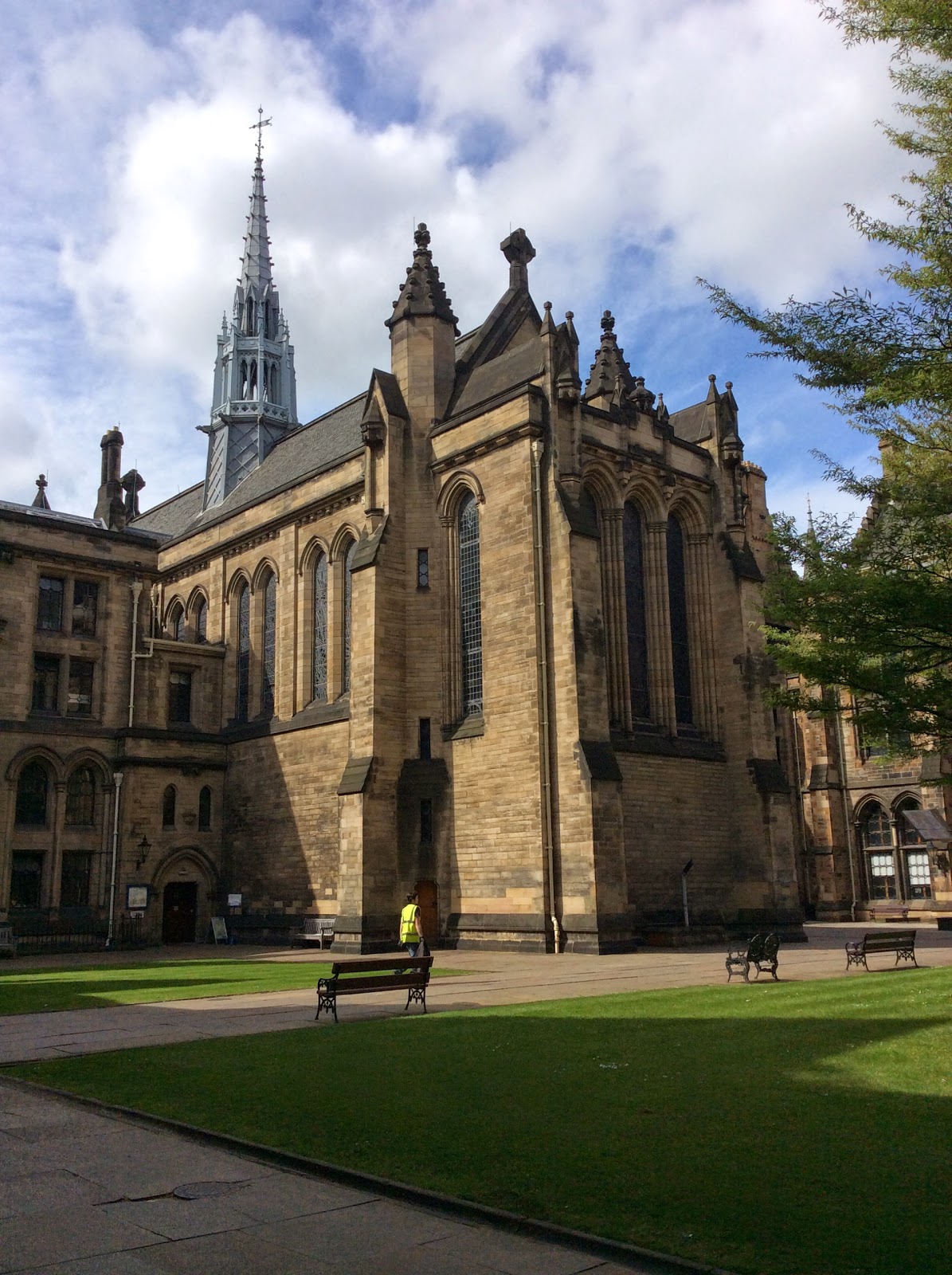 |
| School of Critical Studies, 5 University Gardens, UoG |
So what do I do? First, I work on my PhD, at the University of Glasgow, School of Critical Studies (a mellow-coloured though not photogenic building, pic. above)
 |
| The University of Glasgow was founded in 1451, when there was still a Byzantine empire: the perfect place to write a novel set there! |
For the creative component, I am writing a historical novel (working title: Zoe, or The Obscure Rose), set in the Byzantine empire, which revisits the First Crusade from the viewpoint of marginal characters. For the critical component, I am examining issues related to the links between historiography and historical fiction, with popular narratives of the time of my novel (Lives of Saints, romances, dream books), and with national stereotyping in First Crusade fictions. I am also looking at two novels set at the same time and place, Count Robert of Paris by Sir Walter Scott, and Come Forth King, [ Ένας Σκούφος Από Πορφύρα, literally, A Cap of Purple] by Greek author Maro Douka, translated by David Connolly. Some of the character in both those novels are historical: Anna Comnena, the princess historian, her father, Emperor Alexius I Comnenus, and her mother, Empress Irene Doukaina. Anna Comnena will be a character in my novel, too, but only in a minor role: I want this novel to be about poor, unimportant, marginal people. Queens, princesses, kings and lords have dominated historical fiction for a very long time, as they have dominated historiography. They've had their say. Let others speak now.
I am also a Hunterian Associate. Details on exactly this programme is and what I'm doing there can be found here and here. This is an extraordinary opportunity to take my research in places I wouldn't have normally thought of, outside the sometimes sterile setting of desk and library. I'm talking about physical places: the Hunterian Art Gallery, the Special Collections of the UoG Library; and virtual places: my blog (or two). Fascinating stuff.
I am also a College of Arts Intern. This is still a mystery and a miracle to me, how I was made one: it is one of those extraordinary things that happen to you and make you very happy when you are told and then they make you even happier when you work on them. I get to do all sorts of different things a person working in a university would normally be expected to do - basically it's a bit like trying out different positions and completing various tasks related to uni life. All sort of tasks, and that's what I love about it. For someone with a really low boredom threshold, like myself, trying your hand at different things (and hopefully helping people along the way), and finding out what you'd rather be doing and what you'd rather not, and not having to commit to anything for too long, is just ideal.
So, this is what I do for my PhD. I'm doing much, and I'm enjoying every bit of it so far (though I retain my right to whinge a little from time to time).
I'd really love to know what other people's experience of their PhD is or was. So, if you're reading this, please, do share!
